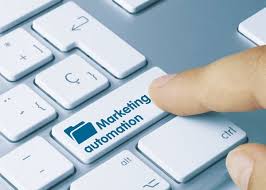
Marketing automation is consumers making purchases through their smartphones, mobile marketing automation has become essential rather than optional. B2C marketers can strategically leverage in-app messaging, SMS, and push notifications to deliver a more personalized and engaging customer experience.
Read more about How Virtual Event Planning
Read more about Understanding the Power of Marketing
For example, a premium travel company might send a push notification promoting an exclusive getaway. When the user taps on it and opens the app, an in-app message appears showing the complete trip itinerary.
HubSpot marketing automation is like picking between a hammer and a nail gun — both get the job done, but one is far quicker and more efficient. As you build your marketing automation workflows, you steadily create a strong framework for your business. Marketing automation doesn’t end after a prospect becomes a customer; it should continue to play a key role in how you connect and interact with them throughout every stage of their journey.
Even after a sale, you should regularly share helpful content on how to use your product, introduce them to complementary products or upgrades, and continue nurturing the relationship.
Customers shouldn’t be treated as an afterthought at the end of your marketing funnel. Understanding them should be at the core of every strategy you implement.
Marketing automation tools act as comprehensive solutions for both marketing campaigns and sales processes. They allow you to gather leads from various campaigns and platforms, track their interactions, and segment them based on demographic data for more targeted marketing. This multichannel system enables engagement with prospects via email, WhatsApp, SMS, social media, self-service portals, and other communication avenues.
When you’re ready to expand your marketing activities, you can create automated, trigger-based workflows to maintain consistent engagement across all platforms.
Lead Squared also provides customizable dashboards and detailed, real-time analytics to give you valuable insights into your campaign performance.
Email marketing automation platforms provide powerful tools for analytics and reporting. Teams can track campaign results, analyze subscriber engagement, and gain valuable insights. Automated email workflows also ensure consistent communication and reinforce brand identity across various campaigns. This approach is particularly advantageous for businesses managing multiple marketing channels and customer touchpoints.
Monitoring marketing performance helps you fine-tune your strategy to achieve improved campaign results.
You can measure effectiveness by comparing present outcomes with previous data. However, managing vast amounts of information in spreadsheets can be challenging. Even after collecting all the data, interpreting it to extract meaningful insights takes time and effort.
Using technology to organize, analyze, and display performance metrics is a much more efficient approach. The reporting and dashboard tools in CRMs, email marketing software, or web analytics platforms transform raw data into actionable insights that empower marketers to make smarter decisions.
Marketing automation platform utilizes technology to simplify and automate various marketing tasks. Its main goal is to enhance the efficiency and performance of marketing operations. Businesses can use automated workflows to conserve time and resources, enabling them to focus on higher-level strategic objectives.
Additionally, marketing automation enables businesses to monitor their marketing campaigns and assess their ROI. By identifying which marketing initiatives deliver the best results, organizations can allocate more resources to those areas and achieve a higher return on investment.
Marketing automation is particularly valuable for small businesses, which often lack the time or personnel for a full-scale marketing team. Automation allows these businesses to handle repetitive tasks more efficiently, freeing up their team to focus on higher-value activities.
Marketing automation platforms are designed to help you achieve greater results in less time, although they require a financial investment. If your budget permits but your schedule is tight, adopting automation tools can be a wise move. However, if you have ample time but limited funds, it might be more practical to delay the purchase.
Marketing automation platforms aren’t suitable for every business. But if you have the funds and want to save time, they can be a valuable investment. They help improve efficiency and position you to better compete with the top players in your industry.
Marketing automation software like Zapier stands out among the many available automation tools. With over 6,000 app integrations, it offers both power and simplicity. Zapier is excellent at automating workflows by linking various applications, though Uncanny Automator delivers more versatility when it comes to WordPress-specific automation. However, the free version of Zapier limits users by allowing only a single action per trigger. Moreover, Zapier supports fewer WordPress plugins compared to Uncanny Automator, which integrates with a broader selection.
Even so, Zapier continues to be one of the top automation tools available, especially for linking third-party applications that aren’t limited to Word Press.
CRM marketing automation plays a crucial role in guiding prospects toward the conversion stage. By assigning values according to their interactions and engagement levels, you can pinpoint the most qualified leads and concentrate your efforts on them. When a lead shows readiness to convert, it can be transferred to a sales representative to proceed with the next steps. Moving leads to the final phase of the marketing funnel is vital, and integrating CRM systems with marketing automation tools makes this process more efficient and seamless.
A CRM platform lets you evaluate every visitor to your website, including the source they came from and the keywords that led them there.
Your sales team can receive real-time alerts whenever a lead or customer takes action. Tracking visitor behavior allows you to segment contacts based on their activities. By leveraging CRM and market segmentation together, you can accurately target your audience, focus on high-potential customers, and ultimately improve your conversion rates.
B2B marketing automation leverages technology and specialized software to simplify and automate marketing activities and workflows, with the goal of improving efficiency, increasing lead generation and nurturing, and ultimately driving business growth. This approach is particularly valuable in the B2B landscape, where sales cycles are typically longer and purchasing decisions involve several key stakeholders.
As companies recognize the need for more personalized, targeted, and data-driven marketing approaches, the demand for advanced automation solutions has grown. Modern B2B marketing automation platforms provide a wide range of features, including lead capture and nurturing, behavioral tracking, and cross-channel campaign management.




